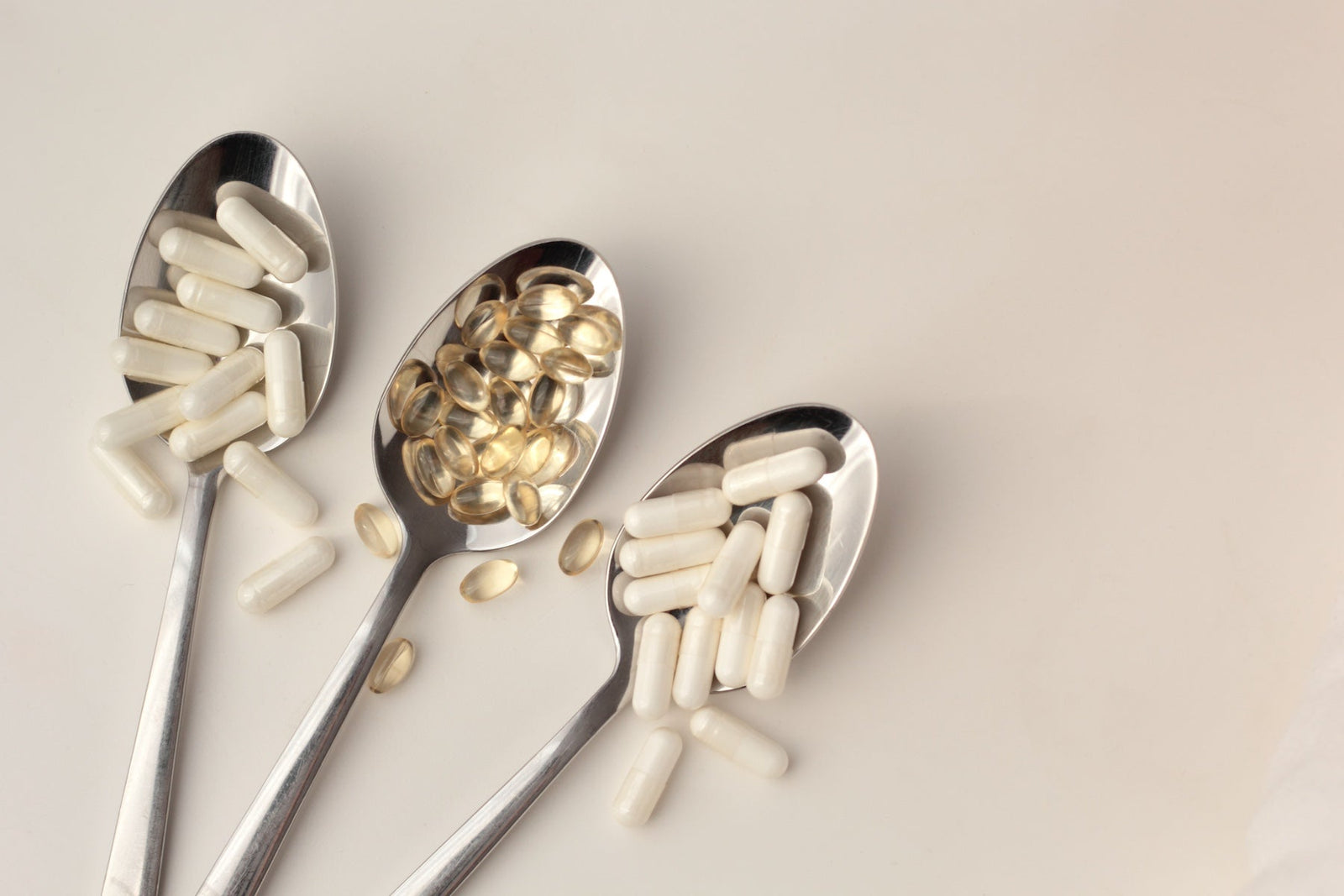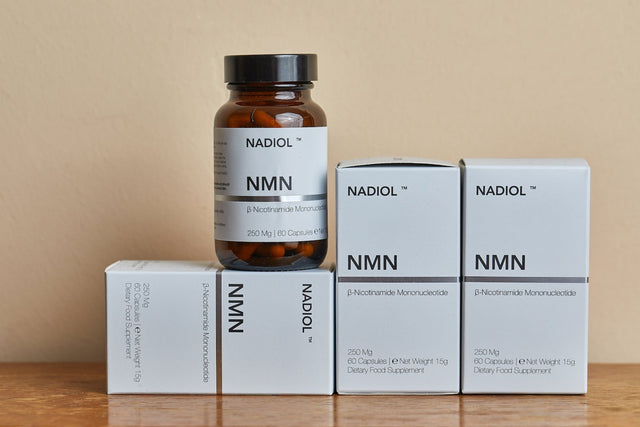N-acetyl cysteine (NAC) is a powerhouse compound that has been used in medicine for decades, yet it’s only recently gained traction in the world of health and wellness. Derived from the amino acid cysteine, NAC is best known for its role in boosting the body’s most powerful antioxidant—glutathione.
From liver detoxification and fertility to reducing oxidative stress and enhancing athletic performance, the potential benefits of NAC are wide-ranging and well-documented in scientific literature. Let’s break down what NAC is, how it works in the body, and whether it deserves a place in your daily supplement stack.
What Is NAC?
N-acetyl cysteine (NAC) is the stable, supplement form of L-cysteine, a conditionally essential amino acid. It was first developed in the 1960s as a mucolytic agent—a compound that helps break down mucus—and was later discovered to have strong antioxidant properties.
FDA-Approved Medical Uses
NAC has long been approved by the U.S. Food and Drug Administration (FDA) as a prescription medication to treat acetaminophen (Tylenol) overdose, which can cause fatal liver damage. In this context, NAC works by rapidly restoring hepatic (liver) glutathione levels and preventing acute liver failure (Presley et al., 2020).
It’s also been used as a treatment for:
-
Chronic respiratory diseases (e.g., chronic bronchitis, COPD, cystic fibrosis)
-
Radiocontrast-induced nephropathy
-
Heavy metal toxicity
-
Addiction and psychiatric conditions
Regulatory Controversy: Is NAC a Supplement or a Drug?
While NAC has been sold as a dietary supplement for decades, the FDA reignited controversy in 2020, arguing that NAC was approved as a drug before it was marketed as a supplement. This made it technically ineligible for inclusion in dietary supplements under the Federal Food, Drug, and Cosmetic Act. However, in August 2022, the FDA announced it would exercise enforcement discretion and allow NAC to remain available as a supplement (FDA, 2022).
How Does NAC Work?
To understand NAC’s power, you need to understand glutathione, often referred to as the “master antioxidant.” Glutathione is present in every cell in your body and plays a central role in detoxification, immune regulation, DNA synthesis, and cellular repair.
NAC functions primarily by acting as a precursor to glutathione synthesis. It supplies the critical sulfur-containing amino acid cysteine, which is the rate-limiting substrate in glutathione production.
Why Is Glutathione So Important?
Free radicals—unstable molecules that form as a byproduct of cellular metabolism—can damage cells, proteins, and DNA, contributing to aging and disease. Glutathione neutralizes these free radicals and repairs the oxidative damage they cause. Low glutathione levels have been linked to:
-
Neurodegenerative diseases (Alzheimer’s, Parkinson’s)
-
Chronic inflammation
-
Weakened immune function
-
Cancer development
-
Liver disease
By increasing intracellular glutathione concentrations, NAC supports the body's natural antioxidant defense system and helps maintain cellular health and resilience (Aldini et al., 2018).
NAC Benefits
Thanks to its antioxidant, mucolytic, and anti-inflammatory properties, NAC has demonstrated therapeutic potential in numerous areas of health. Some of the most well-studied benefits include:
1. Supports Respiratory Health and Mucus Clearance
NAC has been used in clinical settings for over 50 years to treat lung conditions. It works by breaking down disulfide bonds in mucus proteins, which thins thick mucus and makes it easier to expel from the lungs.
NAC is especially beneficial for individuals with:
-
Chronic Obstructive Pulmonary Disease (COPD)
-
Cystic Fibrosis
-
Bronchitis
-
Asthma
-
Pulmonary fibrosis
In a landmark clinical trial, the BRONCHUS study (2005), 523 COPD patients were treated with 600 mg of NAC daily over a three-year period. Results showed a reduction in disease exacerbations, suggesting that NAC can improve breathing and slow disease progression (Decramer et al., 2005).
Additional studies show NAC reduces inflammation in the airways, improves oxygen delivery, and may even protect against acute respiratory infections (Kelly, 1998).
2. Supports Fertility and Reproductive Health
NAC is commonly used to support female fertility, especially in women diagnosed with Polycystic Ovary Syndrome (PCOS)—a hormonal condition that affects ovulation and insulin sensitivity.
In women who are resistant to clomiphene citrate (CC), a standard fertility drug, NAC has been shown to increase ovulation and pregnancy rates when combined with CC. This is likely due to NAC’s insulin-sensitizing and anti-inflammatory effects, as well as its ability to improve hormonal balance (Rizk et al., 2005).
In males, NAC may improve sperm motility, volume, and overall fertility by reducing oxidative stress in the seminal fluid (Safarinejad et al., 2009).
3. Enhances Physical Performance and Reduces Fatigue
Athletes and fitness enthusiasts are turning to NAC for its ability to enhance performance by reducing oxidative stress and delaying fatigue. When muscles contract repeatedly during exercise, they generate free radicals that can impair performance and cause soreness.
Research shows that NAC supplementation improves muscle recovery, boosts time to exhaustion, and helps maintain glutathione levels during intense training (Kerksick et al., 2010).
In one study, cyclists who took NAC performed significantly better in time trials and had lower levels of exercise-induced oxidative damage compared to placebo (Matuszczak et al., 2005).
4. Protects the Liver and Aids Detoxification
Your liver is your body’s detox center, and glutathione is its secret weapon. NAC helps restore depleted glutathione levels, particularly in cases of alcohol abuse, non-alcoholic fatty liver disease (NAFLD), hepatitis, and drug-induced liver injury.
In acetaminophen overdose, NAC is the gold-standard treatment because of its ability to prevent liver failure by replenishing glutathione stores (Presley et al., 2020).
5. Supports Mental Health and Brain Function
Recent research indicates that NAC may benefit the brain by reducing inflammation, modulating glutamate levels, and restoring oxidative balance. This has opened the door to its use in conditions such as:
-
Obsessive-compulsive disorder (OCD)
-
Bipolar disorder
-
Schizophrenia
-
Addiction recovery
In a 2013 meta-analysis, NAC supplementation was associated with significant improvements in depression, anxiety, and cognitive function (Deepmala et al., 2015).
NAC Dosage and Forms
Typical NAC dosage ranges between 600 mg and 1,800 mg per day, depending on the goal:
-
General antioxidant support: 600–1,200 mg/day
-
Respiratory conditions: 600 mg 2–3x/day
-
Athletic performance: ~1,200 mg pre-workout
-
Liver detox or acute treatment: Up to 3,000 mg under supervision
NAC is available in capsule, powder, liquid, and IV form. Oral bioavailability is relatively low (~6-10%), but consistent daily intake can still raise glutathione levels over time (Holdiness, 1991).
Is NAC Safe?
NAC is considered safe and well-tolerated, even at high doses. The most common side effects are:
-
Mild gastrointestinal upset
-
Headache
-
Nausea
-
Dry mouth or rash
That said, NAC may interact with medications such as nitroglycerin or activated charcoal. Always consult your healthcare provider before adding it to your regimen.
Long-term studies show no significant toxic effects, even with extended use, making NAC one of the safest antioxidants available (Mokhtari et al., 2017).
Final Thoughts: Should You Supplement with NAC?
N-acetyl cysteine is far more than just a supplement—it’s a scientifically validated, clinically respected compound with multi-system benefits. From detoxifying the liver and clearing the lungs, to improving fertility, enhancing exercise performance, and supporting mental health, NAC plays a critical role in restoring balance and resilience within the body.
Whether you're navigating chronic illness, aiming to improve athletic recovery, or simply looking to support your long-term health, NAC offers a unique and powerful edge. Backed by decades of clinical research, it’s one of the most versatile and underappreciated tools in functional wellness and sports performance.
As always, before adding NAC—or any supplement—to your routine, consult a healthcare provider to ensure it's appropriate for your individual needs. But if you're ready to elevate your recovery, immunity, and resilience from the inside out, NAC is a smart place to start.
Find similar articles:
Supplements












